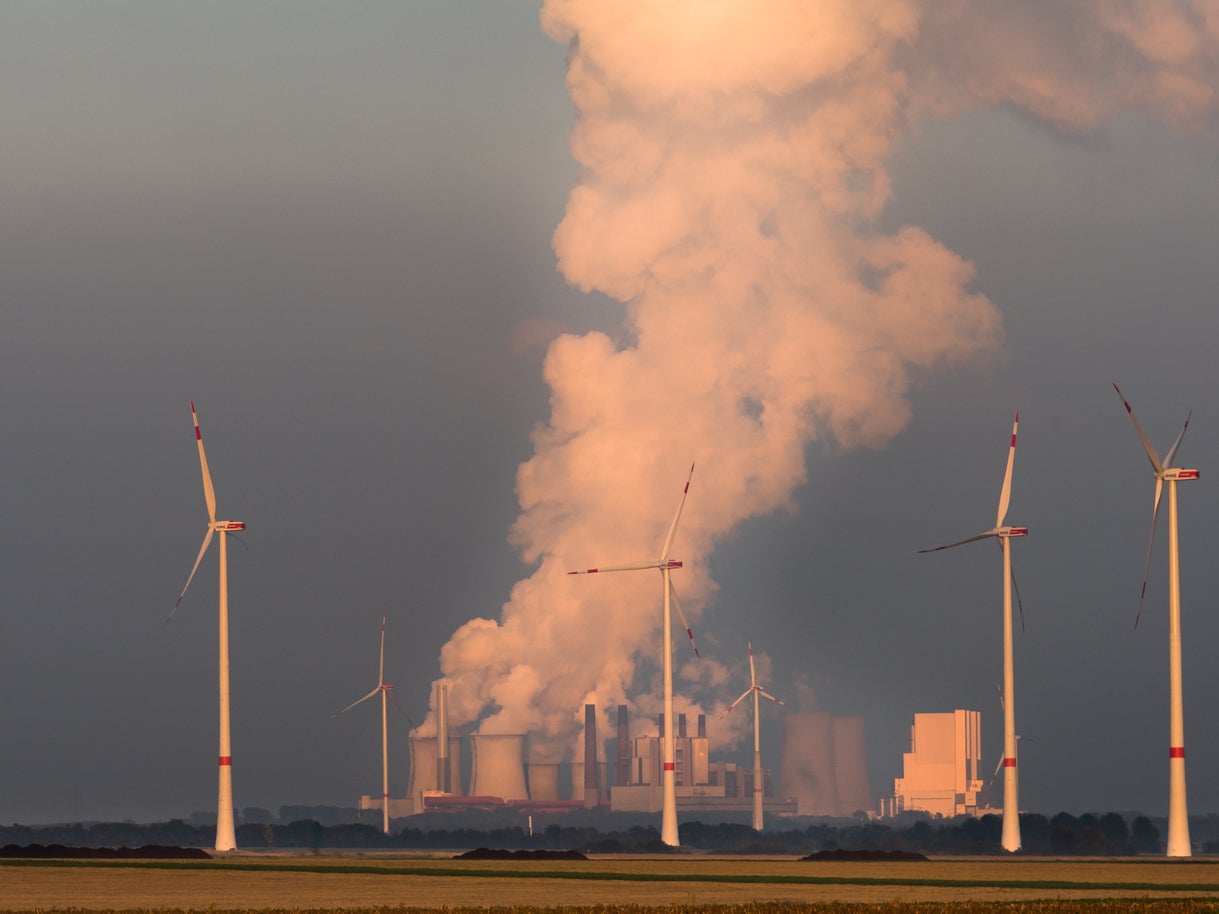Global energy provided by clean sources matches coal for first time, analysis reveals
Coal output falls by 3 per cent as wind and solar soar

A historic fall in coal-fired power around the world has helped see clean sources of energy match coal in terms of power output for the first time ever.
In 2019, clean power, which includes nuclear, hydro, wind, solar, biomass and geothermal sources, generated more than 36 per cent of the world’s power, according to BP’s annual statistical review of world energy.
As well as declining demand for coal, rapid increases in demand for wind and solar power helped reach the milestone.
Across the world global electricity output rose by just 1.3 per cent in 2019, less than half the rate of growth in 2018 (2.8 per cent).
Coal output fell by 3 per cent overall, while power generation by wind surged by 13 per cent over the same time period and solar power output increased by 24 per cent.
Overall, renewables, excluding hydro power, contributed the largest increase in energy terms on record in 2019, accounting for over 40 per cent of the global growth in energy generation last year, larger than any other source.
Renewable energy is also outpacing growth in nuclear power, BP revealed. Though nuclear power output rose by 3.5 per cent in 2019, it was overtaken for the first time by non-hydro renewables.
Analysis of the data by Carbon Brief shows coal has now seen declining demand in four of the last six years and remains well below its peak in 2013.
Nonetheless, BP said coal consumption had continued to increase in some emerging economies, particularly in China, Indonesia and Vietnam.
The company noted that growth in India, usually a key driver of coal consumption, was only 0.3 per cent – its lowest since 2001.
Though coal use had increased in China, the country was also the largest contributor to renewables growth.
Global energy demand has increased by 50 per cent in the last two decades, and is double what it was in 1980.
Global carbon emissions from energy use grew by 0.5 per cent, less than half 10-year average growth of 1.1 per cent per year, BP said.
Carbon Brief noted that of the 161 million tonnes of CO2 the increase represents, the largest driver was gas, which accounted for roughly four-fifths of the total. Rising oil use was responsible for around three-fifths of the increase in emissions, with the fall in coal offsetting the difference.
Clean sources of energy have previously almost matched coal in terms of power output in the 1990s, due to the rapid growth of nuclear power. However, the milestone was never reached until now because of an enormous surge in coal-fired power during the 2000s as a result of China’s massive economic boom.
Green Party peer Natalie Bennett said the current coronavirus crisis was an opportunity to make stronger gains in renewable energy.
She told The Independent: “It is great to see renewables overtaking fossil fuels, but there is still a long way to go.
“Global CO2 emissions have continued to rise, meaning we are further away from our global climate goals than ever before.
“As countries across the world look to bounce back from the arrival of [the coronavirus], we are facing a pivotal moment in the climate emergency.”
She added: “Either governments bring back failed, outdated approaches, disastrous for the environment, which have produced societies riven with poverty and inequality, or they invest in and support low-carbon, equality-building technologies and approaches that deliver a healthy, genuinely sustainable society.”
Jess Ralston, an analyst at the Environment and Climate Intelligence Unit, said the report revealed how renewable energy is increasingly the most attractive option for investors.
She told The Independent: “For those following the steady gains that clean energy has been making year on year, this news is not particularly surprising – but it is a significant milestone, nevertheless.
“Investing in new renewables to replace outdated electricity sources like coal now makes financial sense as these projects have rapidly fallen in cost. So much so that, in 2019 almost 60 per cent of all new, large-scale renewable electricity generation capacity beat the cheapest new fossil fuel plants on price.”
She added: “The other remarkable part of this story is that about BP itself, as under new boss Bernard Looney it has seemingly become one of the first oil majors to be jolted to into the realisation of the long-term unsustainability of its business. It appears they’ve seen the writing on the wall for fossil fuels, with some credible commentators even suggesting that coronavirus may have pushed us past peak demand for commodities like oil. Continuing and accelerating the shift away as we rebuild greener is now a win-win for forward thinking companies like BP.”
Join our commenting forum
Join thought-provoking conversations, follow other Independent readers and see their replies
Comments